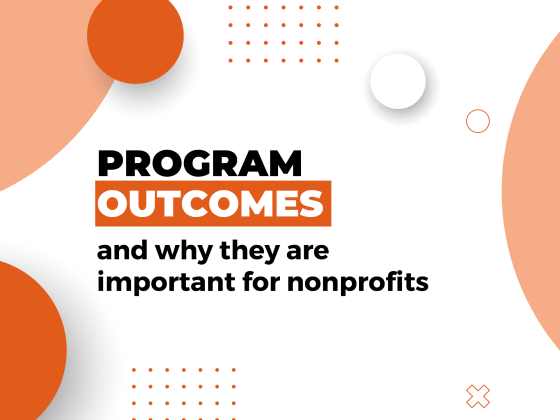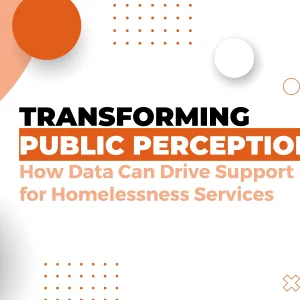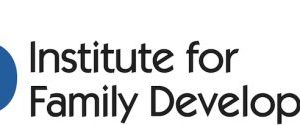What Are Program Outcomes and Why Are They Important for Nonprofits?
For nonprofits, achieving the desired impact is not just about doing good work; it’s about measuring that impact effectively. This is where program outcomes come in. Understanding program outcomes and tracking them can help nonprofits ensure that they are making a meaningful difference in their communities.
In this article, we will explore what program outcomes are, why they matter for nonprofits, and how to develop effective outcome measures that can help your organization achieve its mission.
What Are Program Outcomes?
Program outcomes in the context of nonprofit organizations are the measurable changes, results, or benefits that occur as a result of their programs and services. They represent the impact of the organization’s work and help demonstrate how the organization is fulfilling its mission and achieving its goals.
Program outcomes can be both short-term and long-term, and may include changes in knowledge, attitudes, behaviors, skills, health status, or other indicators of well-being. Examples of program outcomes for nonprofit organizations might include:
- Increased high school graduation rates among at-risk youth
- Increased access to affordable housing for low-income families through the organization’s housing programs
- Increased job readiness and employment opportunities for individuals who complete job training programs
- Increased access to healthcare services among underserved communities
The Difference Between Program Outcomes, Outputs, and Inputs
Outputs, outcomes, and inputs of a program may sound very similar, but there are some key differences to be aware of. Each one represents different stages and types of results in the program process.
Inputs
Inputs refer to the resources that are invested in a program, such as funding, staff, equipment, and materials. They can also include the expertise and experience of program staff and volunteers. Program inputs are important because they represent the foundation of the program and can influence the effectiveness of the program in achieving its desired outcomes.
Outputs
Outputs are the direct services produced by the program, such as the number of people served, the number of workshops held, or the number of meals provided. Outputs are important to evaluate because they demonstrate the quantity of work that the program has done. They can help identify areas where the program may need to improve.
Outcomes
As discussed, outcomes are the results or changes that occur as a direct result of the program’s outputs. Let’s look at why program outcomes are so important for nonprofits.
5 Reasons Why Program Outcomes Are Important for Nonprofit Organizations
According to a recent publication in the Journal of Public and Nonprofit Affairs, outcome-focused approaches are gaining traction in the nonprofit sector. The study highlights several advantages of adopting an outcome-focused approach, such as improved program design and implementation, increased accountability, and better alignment of programs with organizational goals.
1. Improved program design and implementation
Tracking outcomes provides valuable information about what is working well and what can be improved in a program. And by defining your outcomes clearly, you can track your program outputs and assess whether they are leading to your intended outcomes
By understanding what outcomes are being achieved, and where there are gaps or areas for improvement, nonprofits can make changes to their program design to maximize impact and improve program efficiency. With outcomes measurement, your team can isolate any of the variables to understand their impact.
2. Increased accountability
Program outcomes serve as a way for nonprofits to be accountable to their stakeholders, including donors, volunteers, and program participants. By tracking and reporting on program outcomes, nonprofits can demonstrate their impact and show how they are using resources effectively.
3. They inform decision-making
Program outcomes can help nonprofits make informed decisions about how to allocate resources, prioritize programs, and identify areas for growth. By knowing if an intervention was implemented as planned, you can determine what has contributed to the success of an intervention. With more data on the outcomes of their programs, nonprofits can make evidence-based decisions about how to best achieve their goals.
4. They ensure adherence to reporting requirements
Many funders, including government agencies and private foundations, require nonprofits to track and report on program outcomes as a condition of funding. By tracking outcomes, nonprofits can ensure that they meet these reporting requirements and maintain positive relationships with their funders.
5. Better alignment of programs with organizational goals
In order to ensure that programs are aligned with the organization’s mission, program outcomes should be directly tied to the overall purpose of the nonprofit in the community. During strategic planning, the mission serves as the foundation for identifying major goals that must be reached to fulfill the mission. Each program outcome should be designed to contribute to one or more of these strategic goals, which collectively work towards achieving the mission.
For example, if a nonprofit organization’s mission is to reduce homelessness in a community, one of its strategic goals may be to increase access to job training and employment services for individuals experiencing homelessness. The program outcomes for a workforce development program could be designed to directly contribute to this strategic goal. Some examples of program outcomes could include:
- 80% of program participants will secure stable employment within six months of completing the program
- 75% of program participants will report an improvement in their financial stability within three months of securing stable employment
By establishing program outcomes that are tied to strategic goals and the organization’s mission, the nonprofit can more effectively measure the success of its programs and ensure that they are contributing to the overall mission.
Best Practices For Developing And Using Program Outcomes
Here are a few key best practices to keep in mind as you work to establish impactful program outcomes.
Involve stakeholders
Involve stakeholders, including clients, staff, volunteers, and board members, in the process of developing program outcomes. This can help ensure that outcomes are relevant and meaningful to those who are affected by the programs. Communicate program outcomes to stakeholders using clear and accessible language, and present data in a way that is meaningful and understandable.
Use SMART criteria
Develop program outcomes using the SMART criteria, which stands for Specific, Measurable, Achievable, Relevant, and Time-bound. This can help ensure that outcomes are clear, measurable, and achievable.
Collect baseline data
Collect baseline data on program outcomes before implementing program changes. This can help establish a baseline for comparison and demonstrate the impact of program changes.
Use multiple data sources
Use multiple data sources to evaluate program outcomes, including quantitative and qualitative data, such as surveys, focus groups, and client testimonials.
Let Exponent Case Management Help With Your Program Outcomes
As a nonprofit, you have a mission to drive social change through your services. But to really know what impact you are making, you need to track, measure, and report on your program’s success.
Exponent Case Management’s Outcomes Management Advisory Service offers a comprehensive solution that extends beyond basic data collection. Our approach enables you to establish a clear link between your mission and the data, giving you a comprehensive understanding of your impact. With our service, you make informed decisions and demonstrate the positive impact of these decisions to stakeholders.
Are you ready to quantify your outcomes and accelerate the impact of your programs and services? Sign up for our live monthly demo to understand the features and capabilities of our comprehensive platform.



